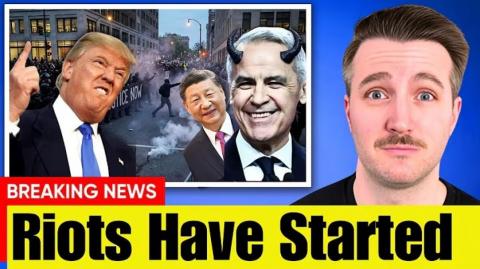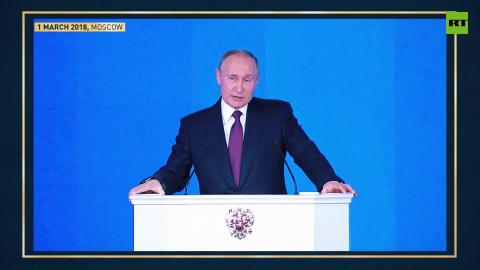A New Façade of the São Paulo Forum (Olavo de Carvalho)
A New Façade of the São Paulo Forum
At first glance, the Union of South American Nations, UNASUR, is nothing more than the implementation of a constitutional precept. In its Article 4, sole paragraph, the Brazilian Constitution states:
"[…] cultural unity of the peoples of Latin America, aiming at the formation of a Latin American community of nations."
In truth, it will be a supranational authority, an organ of world government, with powers to impose socialism across the continent without the peoples and nations involved being able to halt the process or interfere with it in the slightest. The reasons that lead me to say this are many.
First of all, the implementation of world government through successive regional integrations is a plan already in an advanced stage of execution, as admitted two years ago in a report by the Council on Foreign Relations.
Of the various planned regional integrations, the first and most successful so far — the model for all that are to come — is the European Union, and it operates exactly as I’m describing. Nowadays, seventy percent of government decisions in Europe are made in Brussels, without the voters of the various countries being able to utter a word or even having the means to inform themselves about them. The democratic process in European nations is today limited to minor and short-term issues, which must comply with the general lines determined by the EU. Europe is today a dictatorship locally administered by toy democracies tasked with ratifying its decisions — either by imposing them without giving any explanation to the electorate (as in the case of British polygamy), or by legitimizing them through a new kind of public consultation, farcical to the last limits of buffoonery: when a referendum goes against the EU’s will, it is considered provisional, and then another is held, and another, and another, exhausting the electorate until it gives the desired answer, which then becomes definitive (this is how the legalization of abortion was imposed in Portugal, for example). The EU Constitution, to admit a new member nation, requires proof that the current regime is sufficiently democratic, but, as sociologist Ralf Dahrendorf observed, the EU itself — were it to apply for admission to itself — would never pass the exam.
Anyone wishing to study this subject should read The European Union Collective by Christopher Story (London, Edward Harle), and above all the recent study by John Fonte, “Global Governance vs. the Liberal Democratic Nation-State: What Is the Best Regime?”, presented last Wednesday at the 2008 Bradley Symposium of the Hudson Institute in Washington D.C., which I will return to at the end of this article.
Thirdly, the generating core of the planned Latin American integration already exists and has been fully operational for eighteen years: it is the São Paulo Forum. The level of integration already achieved there can be measured by the extent of the network of mutual protection among legal leftist parties and drug-trafficking and kidnapping organizations, which operates in practically all Latin American nations, ensuring total impunity for criminals who act in the interest of the leftist continental strategy. The book organized by Paulo Diniz Zamboni, Open-Door Conspiracy: How the Communist Revolutionary Movement Resurfaced in Latin America through the São Paulo Forum, recently released by É-Realizações (São Paulo, 2008), gives a general description of the phenomenon. Important updates are the articles “The 14th São Paulo Forum Shreds Its Manual” by Alejandro Peña Esclusa, and “14th Meeting of the São Paulo Forum: Refoundation or Whitewashing?” by Graça Salgueiro.
The complete absence of national borders for the São Paulo Forum and the frightening effectiveness of its secret management of continental affairs were more than proven when Mr. Luiz Inácio Lula da Silva, in his speech of July 2, 2005, on the Forum’s 15th anniversary, admitted that the result of the Venezuelan referendum of August 15, 2004, was engineered through the covert intervention of himself and other members of the entity. The Forum’s power of control over public debate can be measured by the fact that Mr. Luiz Inácio, even after that official confession, was never once questioned in Parliament or in the media about his illegal interference in the affairs of a neighboring country. The Forum does what it wants, and no one around dares even to raise questions.
Latin American integration also operates at the openly criminal level, but even when the collaboration between the FARC, the Chilean MIR, and local gangs led to the macabre record of 50,000 homicides per year in Brazil, the existence of the web of complicities that made such a result possible remained a taboo in parliamentary debates and in the media at large. In political and business circles, any mention of the matter is still considered a sinful rudeness. The Forum is already the transnational, supranational authority before which nations bow with reverent and silent obedience, daring to say or think nothing against such a sublime entity. What, then, is the need for an organ in charge of performing the “integration”? UNASUR will do nothing but lay a mantle of apparent legality over the accomplished fact, with the help of appropriate commercial conveniences on both sides, soothing the consciences of those who kept silent for almost two decades before the advance of arrogance and crime on a continental scale.
At John Fonte’s conference — which, in one hour, taught me more about international politics than I would have learned reading a whole year’s worth of The New York Times or a hundred years of Folha de São Paulo editions — one of the most important details was the citation of a piece of advice given by journalist and political scientist Strobe Talbott to Bill Clinton, advice that earned him the appointment as Assistant Secretary of State in 1994. To overcome Americans’ resistance to the proposal of dissolving U.S. national sovereignty, Talbott recommended “selling multilateralism as not only an economic imperative, but also as a means to preserve and expand American leadership in the world.” All of Clinton’s foreign policy is contained in that formula: dissolve American national power while pretending to expand it.
As globalization initiatives have since become quite intrusive and overbearing, the American nation ended up being blamed for everything that was done against it. A side effect of this, in Latin America, was to give retroactive and reinforced credibility to the old “anti-imperialist” rhetoric of the soi-disant nationalist left — represented in Brazil, for example, by an Aldo Rebelo or a Manuel Cambeses Jr. — causing the public opinion of nations affected by the advance of globalism to blindly turn against the U.S., thereby covering up and protecting the true sources of oppression.
The services rendered by left-wing nationalism to globalism have been amply rewarded through the increasingly intense support that leftist organizations receive from entities such as the Ford and Rockefeller foundations — not to mention George Soros. The case of the Raposa Serra do Sol reserve illustrates this particularly clearly, and no one will understand the few and feeble resistances that the initiative provoked among leftists unless they pay attention to the fact that they seek to fit the nationalist reaction into the old “anti-imperialist” framework, turning it against the U.S. and helping to demolish the only national resistance still capable of confronting the globalist advance.
0



 NerokeFive
NerokeFive
 Ron DeSantis
Ron DeSantis
 Life_N_Times_of_Shane_T_Hanson
Life_N_Times_of_Shane_T_Hanson
 Matt Kohrs
Matt Kohrs
 TheQuartering
TheQuartering





 The Crigler Show
The Crigler Show
 KEEPER
KEEPER

 NiilistaCetico
NiilistaCetico
 AwakenWithJP
AwakenWithJP
 RT
RT
 Stefan Molyneux
Stefan Molyneux
 Timcast IRL
Timcast IRL




Log in to comment